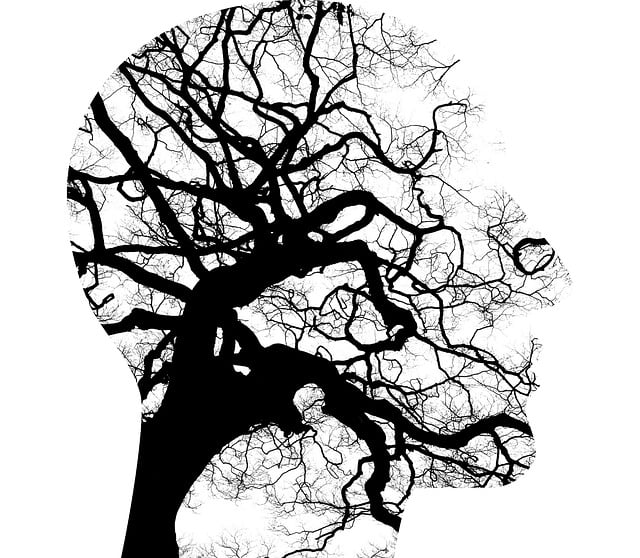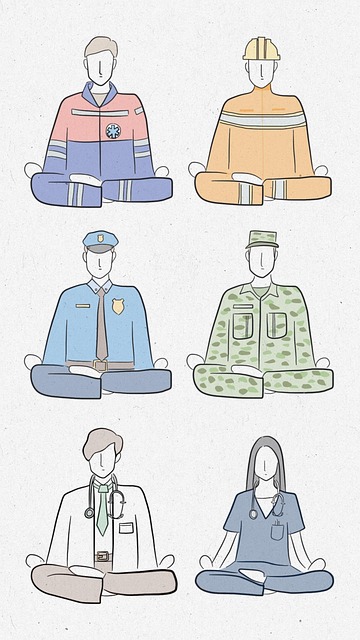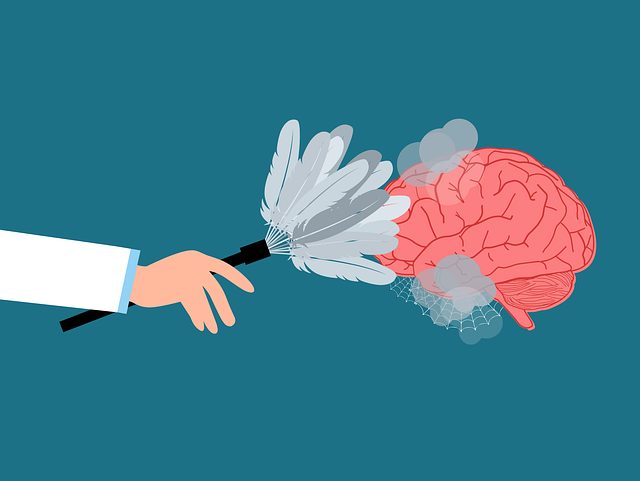Parker Trauma Therapy emphasizes the vital role of coping skills in managing life's challenges, especially trauma, promoting mental health and well-being. Their holistic, evidence-based approach combines techniques like cognitive restructuring, exposure therapy, and EMDR to process traumatic memories effectively. By educating individuals about their coping behaviors through public awareness campaigns, encouraging journaling, and advocating for stigma reduction, Parker Trauma Therapy empowers people to develop robust coping strategies. Integrating these skills into daily life builds resilience, enhances stress management, and fosters mental wellness post-trauma, aligning with broader mental health policy goals.
Coping skills development is a vital process for navigating life’s challenges. This comprehensive guide explores effective strategies, starting with an understanding of coping skills and their significance in mental well-being. We delve into the Parker Trauma Therapy approach, a robust framework for managing trauma. Practical strategies are offered to foster resilient coping mechanisms, emphasizing integration into daily routines for long-term resilience. By exploring these avenues, individuals can enhance their ability to face and overcome life’s hardships.
- Understanding Coping Skills and Their Significance
- The Parker Trauma Therapy Approach: A Comprehensive Framework
- Practical Strategies for Developing Effective Coping Mechanisms
- Integrating Coping Skills into Daily Life and Long-Term Resilience
Understanding Coping Skills and Their Significance

Coping skills are the strategies individuals use to navigate and overcome life’s challenges and stressful events. They play a pivotal role in mental health and well-being, especially when dealing with traumatic experiences. As highlighted by Parker Trauma Therapy, effective coping mechanisms can transform the way people respond to adversity, fostering resilience and promoting emotional healing processes.
Incorporating healthy coping skills is crucial for maintaining equilibrium and preventing the exacerbation of issues. These skills encompass a range of strategies from engaging in physical activity to practicing mindfulness or seeking support from peers and professionals. Public Awareness Campaigns Development can significantly contribute to educating individuals on recognizing their own coping patterns, whether they are adaptive or maladaptive. By understanding these mechanisms, people can develop more constructive ways to manage their moods, especially during difficult times.
The Parker Trauma Therapy Approach: A Comprehensive Framework

The Parker Trauma Therapy Approach offers a comprehensive framework for addressing complex trauma and its lasting effects on mental health. This evidence-based method recognizes that traumatic experiences can significantly impact an individual’s ability to cope, leading to various challenges in daily functioning and overall well-being. By focusing on trauma-informed care, the approach aims to help individuals process and resolve these deeply ingrained memories, fostering a path towards healing and recovery.
This therapeutic model emphasizes a holistic view of mental health, considering not just the symptoms but also the underlying causes. It incorporates various techniques such as cognitive restructuring, exposure therapy, and eye movement desensitization and reprocessing (EMDR) to help clients confront and work through traumatic memories safely and effectively. The Parker Trauma Therapy Approach has proven to be transformative in many cases, offering long-lasting benefits for those seeking to overcome trauma and enhance their mental wellness. This method aligns well with the broader goals of Mental Health Policy Analysis and Advocacy by promoting evidence-based practices that can improve support systems and services for individuals facing traumatic experiences, ultimately contributing to better mental health outcomes and boosting confidence in managing one’s emotional well-being.
Practical Strategies for Developing Effective Coping Mechanisms

Developing effective coping mechanisms is a crucial aspect of maintaining mental wellness and managing stress, especially when facing challenges or traumatic experiences. According to Parker Trauma Therapy, several practical strategies can help individuals build resilience and enhance their ability to cope with difficult situations. One such approach involves identifying and understanding one’s emotional responses, allowing for better regulation. This self-awareness can be fostered through journaling, where individuals can reflect on their feelings, triggers, and the thoughts behind them.
Additionally, learning Conflict Resolution Techniques can provide valuable tools for coping. These techniques enable people to navigate difficult interactions with others in a healthy manner, reducing potential stress and conflict. Mental Illness Stigma Reduction Efforts also play a significant role in encouraging open conversations about emotional struggles, fostering support networks, and promoting understanding—all of which contribute to developing robust coping strategies.
Integrating Coping Skills into Daily Life and Long-Term Resilience

Integrating coping skills into daily life is a pivotal step towards fostering long-term resilience, as advocated by Parker Trauma Therapy. Effective coping strategies enable individuals to navigate life’s challenges with greater ease and adaptability. By incorporating practices such as positive thinking, mindfulness, and stress management, one can transform their response to stressful situations, enhancing overall mental wellness.
This holistic approach to well-being encourages a proactive mindset where individuals take charge of their emotional state rather than being reactive to external circumstances. Regularly practicing these coping skills allows for the development of a robust psychological shield, enabling people to bounce back from setbacks and embrace life with renewed vigor.
Coping skills development is a transformative process that empowers individuals to navigate life’s challenges with resilience. By integrating techniques from the Parker Trauma Therapy Approach, people can build a robust toolkit for managing stress and trauma. Through practical strategies and consistent practice, individuals can enhance their ability to cope effectively, fostering long-term mental well-being. Embracing these coping mechanisms allows folks to transform adversity into opportunities for growth, ensuring they emerge stronger and more resilient.














